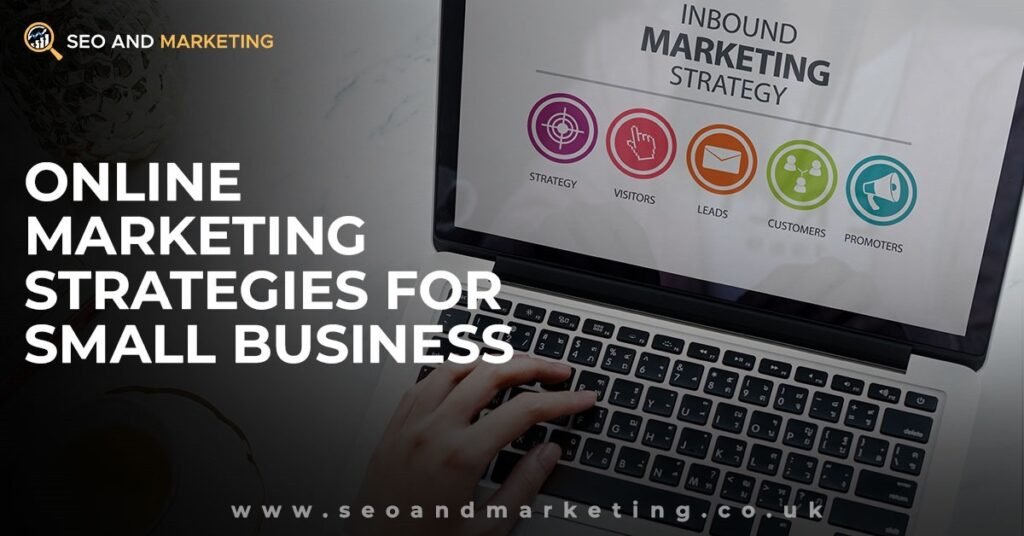In today’s digital world, online marketing strategies for small business play an important role in the UK. With the right strategies, even the smallest of ventures can reach a wide audience and compete with larger competitors. This guide will walk you through effective online marketing strategies tailored specifically for small businesses in the UK.
Understanding Online Marketing
Online marketing encompasses various techniques and channels used to promote products or services on the internet. From social media and email marketing to search engine optimization (SEO) and content marketing, there are numerous avenues for small businesses to explore.
The Significance of Internet Marketing
Picture this: You’ve opened a quaint cafe in a bustling street in London. You make the best coffee in town, but without online marketing, how will people know about it? Effective online marketing ensures that your business gets noticed by your target audience, driving traffic to your website or physical store.
Also read about: social media marketing services in UK
Key Strategies for Small Business Online Marketing
1. Website Optimization
Your website serves as the digital storefront for your business. It need to be intuitive to use, visually compelling, and search engine optimized. Utilize tools like Google Analytics to track visitor behavior and make data-driven improvements.
2. Content Marketing
Create valuable and engaging content that resonates with your target audience. These may be podcasts, charts, clips, or blog entries. Share your content across various channels and encourage social sharing to expand your reach.
3. Social Media Marketing
With billions of users worldwide, social media platforms are invaluable for small businesses. Create profiles on platforms like Facebook, Instagram, and Twitter to connect with your audience, showcase your products or services, and drive traffic to your website.
4. Email Marketing
Build and nurture relationships with your customers through email marketing. Offer incentives such as discounts or exclusive content in exchange for email subscriptions. Send regular newsletters with updates, promotions, and valuable content to keep your audience engaged.
5. SEO or Search Engine Optimization
Improve the content and architecture of your website to improve search engine rankings (SERPs) Conduct keyword research to identify terms relevant to your business, and incorporate them naturally into your website copy and content. Focus on local SEO to attract customers in your area.
6. Paid Advertising
While organic methods are essential, paid advertising can provide a significant boost to your online marketing efforts. Platforms like Google Ads and Facebook Ads allow you to target specific demographics, interests, and locations, ensuring your ads reach the right audience.
Step-by-Step Guide to Implementing Online Marketing Strategies
Step 1: Define Your Goals
Identify what you want to achieve with your online marketing efforts. Whether it’s increasing brand awareness, driving website traffic, or generating leads, clear goals will guide your strategy.
Step 2: Know Your Audience
Understand your target audience’s demographics, interests, and pain points. This will help you create content and messaging that resonates with them and drives engagement.
Step 3: Build Your Online Presence
Make a credible online presence on reputable social media sites and a website. Consistency is key – ensure your branding is cohesive across all channels.
Step 4:Produce Powerful Content
Provide valuable information that is of a high caliber for your viewers. Whether it’s informative blog posts, entertaining videos, or engaging social media posts, aim to capture and retain your audience’s attention.
Step 5: Optimize for Search Engines
Optimize your website and content for SEO to improve your visibility in search engine results. This includes keyword research, on-page optimization, and building quality backlinks.
Step 6: Engage with Your Audience
Interact with your audience on social media, respond to comments and messages promptly, and encourage user-generated content. Building a community around your brand fosters loyalty and advocacy.
Real-Life Success Story
Consider the story of a family-owned bakery in Edinburgh. Despite being a local favorite, they struggled to attract tourists visiting the city. By implementing a robust online marketing strategy that focused on local SEO and engaging social media content showcasing their unique pastries, they saw a significant increase in foot traffic and online orders, transforming their business into a must-visit destination for visitors.
Finalization:
In today’s digital landscape, online marketing is essential for the success of small businesses in the UK. By leveraging the right strategies – from website optimization and content marketing to social media engagement and SEO – small businesses can increase their visibility, attract more customers, and compete effectively in the market.
Remember, online marketing is not a one-size-fits-all approach. Experiment with different strategies, track your results, and adjust your tactics accordingly. With dedication and creativity, your small business can thrive in the digital realm.
Also read about: Advantages of Marketing on Facebook :


